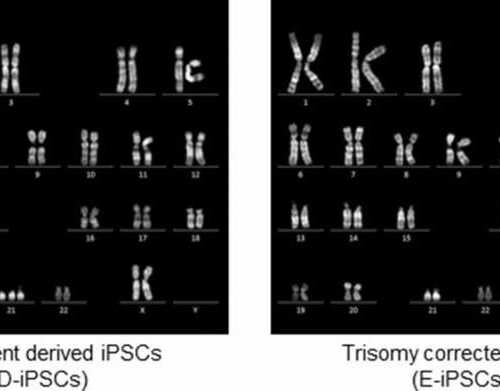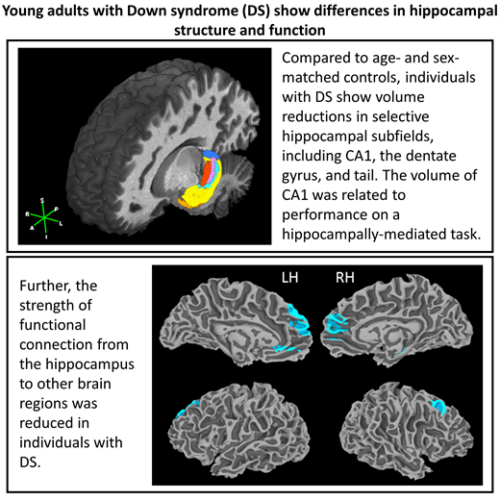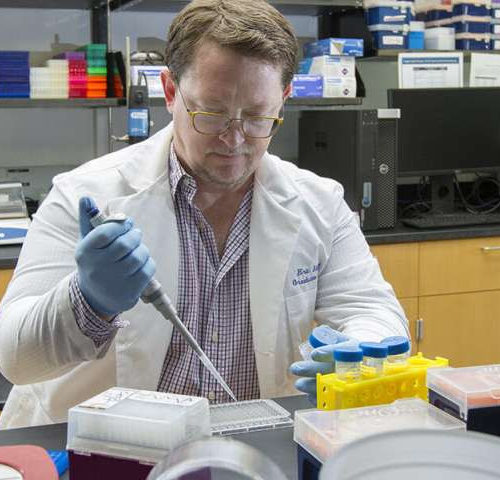For a long time, common diseases (think Alzheimer’s, cancer and other ailments) were thought to arise mostly from molecular or genetic mishaps. But scientists are finding that there seems to be increased involvement of an unexpected culprit: stem cells. Nine years ago, Stanford oncologist Michael Clarke, MD, made a connection between stem cells and Down syndrome: He...
Tag: <span>down syndrome</span>
Mechanism underlying Alzheimer-like damage in the brain of patients with Down Syndrome
TEMPLE UNIVERSITY HEALTH SYSTEM (Philadelphia, PA) – Life expectancy for individuals with Down syndrome has grown in recent decades, thanks in large part to progress in patient care and treatment. But with survival into the fifth and sixth decades of life now possible, increasing numbers of these individuals are affected by conditions linked to aging,...
Stopping dementia in Down syndrome patients
by Kyoto University Karyotype analysis of the iPSC clones. Credit: DOI: 10.1038/s41598-021-96697-7 Down syndrome is mostly known for the learning disabilities it causes, but patients typically suffer from a wide number of ailments. One is the early onset of Alzheimer’s disease. Using iPS cells from Down syndrome patients, a new study by CiRA researchers suggests that the molecular...
Can leukemia in children with Down syndrome be prevented?
by University Health Network Credit: Unsplash/CC0 Public Domain For the first time, Princess Margaret researchers have mapped out where and how leukemia begins and develops in infants with Down syndrome in preclinical models, paving the way to potentially prevent this cancer in the future. Children with Down syndrome have a 150-fold increased risk of developing myeloid leukemia within...
Subtle differences in structure and function of the hippocampus in people with Down syndrome
by Case Western Reserve University Credit: Brain Communications (2021). DOI: 10.1093/braincomms/fcab088 Using ultra-high field magnetic resonance imaging (MRI) to map the brains of people with Down syndrome (DS), researchers from Case Western Reserve University, Cleveland Clinic, University Hospitals and other institutions detected subtle differences in the structure and function of the hippocampus—a region of the brain tied to...
Plant compound reduces cognitive deficits in mouse model of Down syndrome
by NIH/Eunice Kennedy Shriver National Institute of Child Health and Human Development The plant compound apigenin improved the cognitive and memory deficits usually seen in a mouse model of Down syndrome, according to a study by researchers at the National Institutes of Health and other institutions. Apigenin is found in chamomile flowers, parsley, celery, peppermint and citrus fruits....
Resolving inflammation: Could it prevent memory loss in Down syndrome and Alzheimer’s?
by Caleb Stratton, Medical University of South Carolina Individuals with Down syndrome are at a much greater risk of developing Alzheimer’s disease, with inflammation of the brain starting early in life and the risk of Alzheimer’s reaching nearly 80% by the age of 60. The root cause of Alzheimer’s disease is unknown. However, its frequency...
Restoring protein homeostasis improves memory deficits in Down syndrome model
by Baylor College of Medicine Down syndrome is the most common genetic cause of intellectual disability, and currently there is no effective treatment. Memory deficits are a hallmark of this condition and a study published today in the journal Science reports that the defects in a conserved stress pathway dubbed the ‘integrated stress response,’ or...
In Down Syndrome Mouse Model, Scientists Reverse Intellectual Deficits with Drugs
In a surprising finding using the standard animal model of Down syndrome (DS), scientists were able to correct the learning and memory deficits associated with the condition — the leading genetic cause of cognitive disability and the most frequently diagnosed chromosomal disorder in the U.S. — with drugs that target the body’s response to cellular...
New research explains why people with Down syndrome have spatial memory problems
The triplication of a single gene, GRIK1, located on chromosome 21, causes alterations in inhibitory synaptic transmission in the hippocampus, related to memory and space orientation SPANISH NATIONAL RESEARCH COUNCIL (CSIC) Professor Juan Lerma’s group, from the UMH-CSIC Institute of Neurosciences, in Alicante (Spain), has identified the gene called GRIK1, fundamental in the balance between...
- 1
- 2





